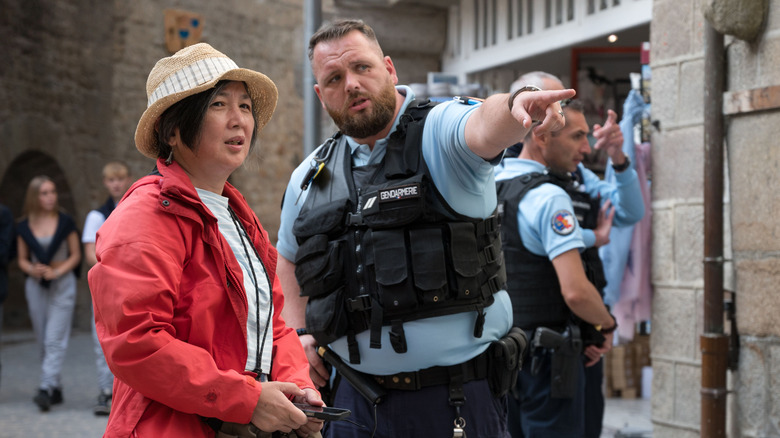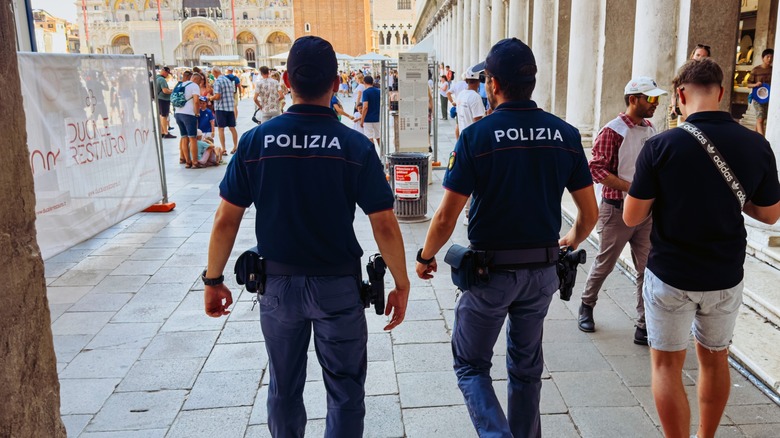How To Spot And Avoid The 'Imposter Police Scam' While Traveling Abroad
There are many amazing joys that come from traveling abroad, including the ability to experience unique cultures, witness breathtaking and iconic landmarks, enjoy different foods, and simply broaden one's worldview — just remember to follow these tips to ease the stress of a last-minute trip. That said, as exciting and rewarding as traveling abroad can be, it does have its downsides. With millions of travelers being unaccustomed to a country's culture and, in some cases, not speaking the language, they become susceptible to various travel scams. From being duped into purchasing fake train tickets to taking a taxi with a deliberately faulty meter to intentionally being given the wrong change, the potential for travelers to get scammed is high and just one of many reasons to consider informing the State Department about your vacation itinerary. One of the most intimidating and concerning travel issues is the "imposter police scam."
As the name suggests, the scam typically involves one or two individuals, dressed in what appears to be official police attire, approaching a traveler while flashing what appears to be police badges. These individuals will typically claim to be doing a "routine check" and ask to see the traveler's official documents, likely their passport. They will also often suggest that they're investigating a counterfeit money situation to get the traveler to hand over cash. This scam can be particularly effective as the perpetrators rely on individuals being understandably concerned at the presence of law enforcement while in a foreign country, and therefore their willingness to comply with whatever is asked of them.
Spotting an imposter police scam and staying safe
As scary and intimidating as this imposter police scenario can be, if you ever find yourself in the situation, there are a few telltale signs to look for that can reveal the scam. Real police officers will rarely approach a tourist without cause and certainly not insist on checking your wallet, demand immediate payment for a fine, or suggest following them to a secluded location. Most scammers are also typically vague about whatever law you supposedly broke.
The key is to remain calm and assertive. First, politely ask to see proper identification. Pay close attention to the badge or ID because scammers rely on individuals merely glancing at their fake identification. Second, and very importantly, safeguard your valuables. Under no circumstances should you ever hand over your passport or wallet on the street. If someone insists on seeing your money or cards, firmly refuse and offer to resolve the issue at an official station.
As a general rule for any travel, particularly traveling abroad, research your destination before you arrive. Knowing how the local police typically operate — for example, what their official uniforms look like, and their typical procedures — will help you spot inconsistencies. Some embassies and travel forums also list known scams by region, to alert travelers before their arrival.
Most importantly, trust your instincts. If something feels off, there's a good chance it probably is. If you feel unsafe, walk away and head toward a crowded area or a trusted establishment, like a hotel or café. And if you ever suspect you've encountered fake officers, report it to your embassy or local authorities.

